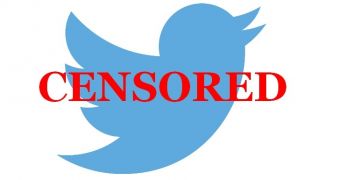Not too long ago, Twitter gave in and allowed Turkey to pressure it into censoring various comments made on the platform, as well as several accounts. This seemed to be the least of all possible evils since the alternative saw the entire network blocked to its over 10 million users in the country.
Unfortunately, this has opened up Pandora’s box and more countries are starting to take advantage and ask Twitter to censor various tweets. Russia’s Roskomnadzor, the control agency, has threatened to block Twitter altogether unless it agrees to block messages that don’t fall in line with local laws.
Now, Pakistan is taking a similar approach and has been asking Twitter to take down a “blasphemous” search, as well as three unethical links that belong to actors in adult movies.
The Pakistan Telecommunications Authority (PTA) is seeking to censor anything that doesn’t comply with the religious guidelines adopted and promoted by the government.
Out of the three accounts, only one remains live and it seems that that’s only because its owner lives in the United States. As for the blasphemous search, it features images and content related to the words “burn quran.” While the accounts are relatively easy to block, the search query is impossible to stop since it’s completely dynamic.
Even so, this points out just how much the Pakistani government understands the basic mechanism of the Internet as it tries to censor it. Furthermore, these countries that keep demanding Internet companies to block content that is illegal on their territories should perhaps try to understand that laws vary from country to country and thus they’re trying to impose their own views on the entire world. Regardless of what that content may be, the most that governments should be allowed to ask is a local blockade rather than absolute wipeout.
Of course, the Pakistani government is better known for yet another controversial move – blocking YouTube. They briefly made YouTube available, before shutting it down once more as they figured out that blasphemous content was still available.
Pakistani Internet users also don’t have access to Google, Yahoo, Bing, Hotmail, MSN and Amazon, or any form of encryption. Given the circumstances, it’s rather odd that they didn’t just ban Twitter altogether rather than have the company block some accounts they’d rather not see.
Unfortunately, however, this isn’t the first time this type of action will take place and it most likely won’t be the last.

 14 DAY TRIAL //
14 DAY TRIAL //